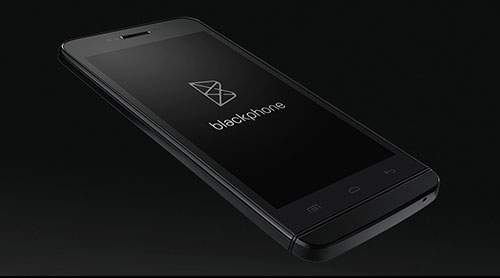Blackphone on Tuesday announced plans to open an app store for privacy-focused applications to run on its secure smartphone. The store is expected to launch in January.
The Blackphone runs PrivatOS, a modified version of Android 4.4.2 that comes bundled with tools that encrypt phone calls, texts, emails and Internet browsing.
The app store will feature curated apps selected for their protection of users’ security and privacy.
The PrivatOS update scheduled for early 2015 will come with several preloaded apps.
Blackphone also announced Spaces, a new capability that will let users of its device create separate containers for apps, data and accounts on one device. It uses Graphite Software’s Secure Spaces, an OS-level virtualization and management solution.
Samsung and BlackBerry offer similar container functionality with their Knox and Balance systems, respectively.
The Numbers Tell the Story
Whether the Blackphone app store will offer enough secure apps to meet users’ needs, and whether Blackphone can attract developers to create apps that meet its requirements, are questions that have yet to be answered.
“Products like this are geared towards a very small section of the population that cares about certain kinds of things,” Jan Dawson, chief analyst at JackDaw Research, told TechNewsWorld.
That equates to a small market for developers, which might be less than attractive, as it will curtail their earnings.
Microsoft has struggled to attract devs to create apps for its Windows Phone, for example, and has resorted to offering cash and other incentives.
“This phone is not going to be for the mass market like the Samsung Galaxy S5,” remarked Ramon Llamas, a research manager at IDC. “It’s going to be for the small group of people who have an incredible distrust of everybody.”
Other Issues for Devs
The Blackphone apps are likely to be expensive, Llamas told TechNewsWorld, because “you won’t be able to take ads, so you’ll have to charge a premium for them.”
PrivatOS is based on Android, and “you have a lot of the skeleton there in all the Android apps, but you can’t just make a couple of tweaks and make them ready to go,” he pointed out.
Will Android users, who are notoriously averse to paying for apps, be willing to cough up for Blackphone apps?
Perhaps.
“You’ll have this virtuous cycle of secure and private apps that function on a secure and private phone,” Llamas said.
Who’s Gonne Take One Home Tonight?
Blackphone probably will target enterprise users, suggested 451 Research analyst Boris Metodiev.
The hope is that interest will spill over into the consumer market, but that’s not likely to happen, he said, because games and social network apps likely will not be allowed on the Blackphones, which means they probably won’t be users’ first BYOD choice.
Consumers are spending more time on their apps, Nielsen found earlier this year. Social networking and search were the apps they used the most.
Mobile shopping — another major threat to security — is also on the rise.
Seventy percent of consumers have made a purchase using a smartphone in the last six months, and 54 percent have used both mobile commerce sites and applications on their smartphones, CFI reported.
Retail m-commerce revenues increased 52 percent, year over year, during the recent Thanksgiving week shopping period, according to Branding Brand.
“When people get a smartphone, regardless of the platform, they’ll want the same apps they’ve been using all along — from entertainment to news to games and so on,” Llamas said. “Just because you have a smartphone that focuses on privacy doesn’t mean you’ll want to forgo all those apps.























































